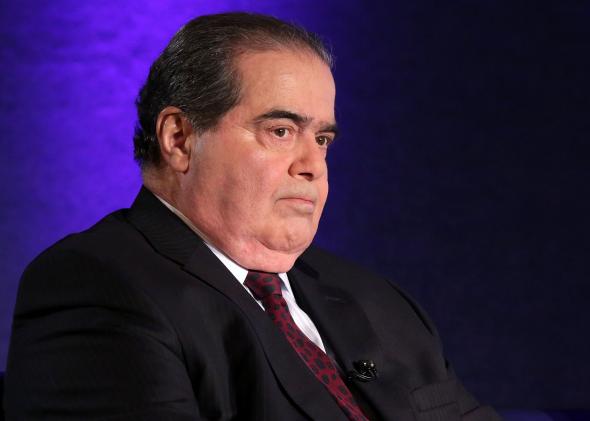What Nuva Rings and Peyote Have in Common Today

Photo by Alex Wong/Getty Images
Cast your mind back to 1990. Got it? Found your Walkman, recovered your Ken Wahl poster and "Bomb Saddam" T-shirt? OK: It's April 17, and a 6–3 Supreme Court majority is ruling against Native Americans who ingested peyote as part of a religious service, then lost their jobs for doing drugs. (The drug panic is part of the 1990 flashback.)
"Precisely because 'we are a cosmopolitan nation made up of people of almost every conceivable religious preference,' " wrote Anontin Scalia, quoting from Braunfeld v. Brown, "and precisely because we value and protect that religious divergence, we cannot afford the luxury of deeming presumptively invalid, as applied to the religious objector, every regulation of conduct that does not protect an interest of the highest order. The rule respondents favor would open the prospect of constitutionally required religious exemptions from civic obligations of almost every conceivable kind."
Three years later, after Bill Clinton becomes president, the Democratic Congress quickly passes the Religious Freedom Restoration Act. According to the new law, "government shall not substantially burden a person’s exercise of religion even if the burden results from a rule of general applicability." It is generally understood that this will prevent religious minorities from being unfairly fired, like those poor peyote-takers were.
Now, return to the present, and trade your "Bomb Saddam" shirt for a "Drone ISIS" shirt. Liberals point out that Scalia once made such a compelling case against religious exemptions to the law that he really can't rule for Hobby Lobby. In arguments, Elena Kagan (who is personally very friendly with Scalia) takes several shots across this particular bow.
It doesn't matter. Sam Alito writes an opinion, joined by Scalia, that cites the—wait for it—Religious Freedom Restoration Act as the reason Hobby Lobby cannot be compelled by the HHS to offer birth control.
